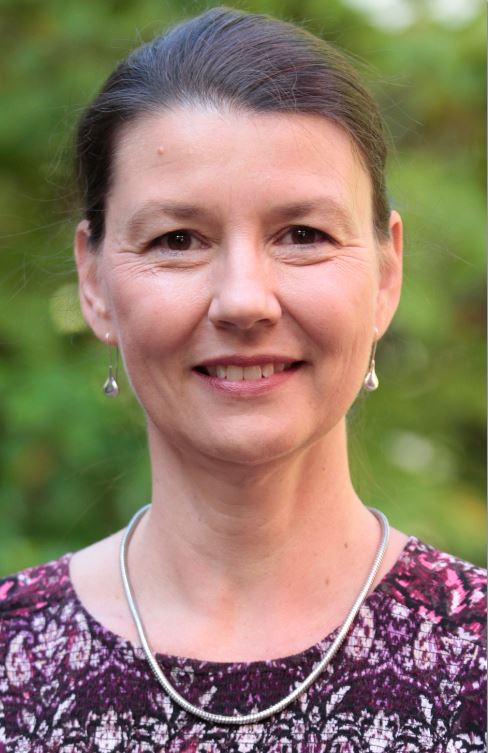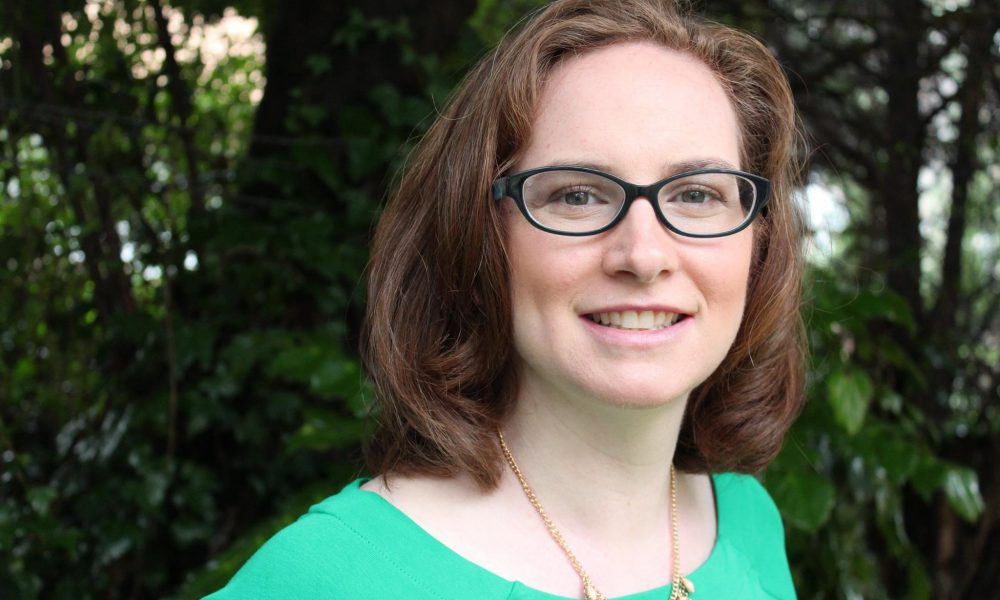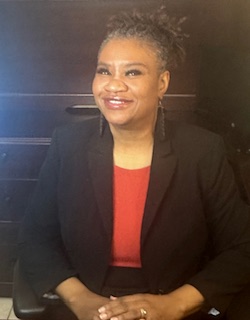Master of Arts in Teaching with a Concentration in Teacher Education
4-5 Semesters | Credit Hours: 30
The Master of Arts in Teaching is available for those who would like to add a Georgia Educator Certificate to an existing undergraduate degree. The MAT in Secondary Education is delivered primarily online, with field experiences in public schools, and leads to a master's degree with teaching certification in grades 6 - 12. The program is a good fit for those who are career changers, provisionally-certified teachers, or recent college graduates. See Department of Early Childhood Through Secondary Education
For more information, please see the Academic Catalog. A program sheet, which provides a required coursework sequence, is available for download in the Courses tab below.
The Masters in Art in Teaching degree is housed in the College of Education Department of Leadership and Instruction. Upon completion of this program, the candidate will earn a master's degree that leads to teaching certification in grades 6 - 12 in the state of Georgia. The certification areas for which this degree is available include:
- Biology
- Broad Field Science
- Chemistry
- Economics
- English
- History
- Mathematics
- Physics
- Political Science
Career Opportunities
Link to Additional Career Information:
https://www.buzzfile.com/Major/Education
External Resource
Program Location
Online
Method of Delivery
This program is earned entirely online. Clinical experiences are required.
Accreditation
The University of West Georgia is accredited by The Southern Association of Colleges and Schools Commission on Colleges (SACSCOC).
Credit and transfer
Total semester hours required: 30
A transfer credit evaluation will be completed by the UWG Transfer Team (transfer@westga.edu). Course application to a program is subject to review by the department.
Graduate students may be able to reduce their cost through prior learning, previous degrees earned at UWG, or transfer credits. We have created a tool to help students estimate their tuition costs.
This program is offered entirely online. Though a student may choose to sign-up for a face-to-face elective or core course, one can earn this degree completely online.
Save money
UWG is often ranked as one of the most affordable accredited university of its kind, regardless of the method of delivery chosen. In addition, online courses and programs can mean a huge cost-savings in many non-evident ways: No more high gas charges. No childcare needed. The flexibility can allow one to maintain a job while attending school. Regardless of state residency, out-of-state non-resident students are not charged non-resident tuition for online course credit hours.
Details
- Total tuition costs and fees may vary, depending on the instructional method of the courses in which the student chooses to enroll.
- The more courses a student takes in a single term, the more they will typically save in fees and total cost.
- Face-to-Face or partially online courses are charged at the general tuition rate and all mandatory campus fees, based on the student's residency (non-residents are charged at a higher rate).
- Fully or entirely online course tuition rates and fees my vary depending on the program. Students enrolled in exclusively online courses do not pay non-Resident rates.
- Together this means that GA residents pay about the same if they take all face-to-face or partially online courses as they do if they take only fully online courses exclusively; while non-residents save money by taking fully online courses.
- One word of caution: If a student takes a combination of face-to-face and online courses in a single term, they will pay both all mandatory campus fees and the higher eTuition rate.
- For the cost information, as well as payment deadlines, see the Student Accounts and Billing Services website
There are a variety of financial assistance options for students, including scholarships and work study programs. Visit the Office of Financial Aid's website for more information.
Coursework
The program requires 30 hours of coursework if the student has all the necessary prerequisites for admission. It involves both classroom and clinical experiences. The program is 100% online. The program is housed in the Department of Early Childhood Through Secondary Education.
Below are sample courses that students will select from:
Downloads
General
This course provides an in-depth study of the major cognitive and behavioral theories of classroom learning. Emphasis will be placed on enabling teachers and counselors to better understand how students learn; on helping educators identify and remove barriers that impede student learning; and on helping educators develop, utilize and advocate teaching practices, programs, and curriculum that lead to academic success for all. Theories of motivation, classroom management practices, and belief systems that promote learning will also be addressed.
This course is a critical study of the design and implementation of curricula in the field of education.
This course is designed to examine issues relating to cultural pluralism and global perspectives in order to provide a richer understanding and appreciation of the social forces that influence the education of diverse student populations. Particular attention is given to culturally responsive teaching, ethical behaviors, and personal responsibility to affect change. Students will examine, evaluate, and develop curricular materials that include techniques to differentiate for diverse populations of P-12 students.
This course is designed to guide 21st Century teachers in developing perspectives on the influences that affect public schools. Educational problems, trends, and issues will be identified and addressed, especially as they relate to students, teachers, school systems, and American society as a whole.
This course is designed for teachers who need strategies for helping their students comprehend informational texts and improve their informational writing skills across the curriculum, especially in content areas such as business, math, science, and social studies. Developmentally appropriate practice and literature for teaching reading and writing in the elementary, middle, and high school, to include the study of language and literacy, study skills, print and non-print media, and technology, will be examined across the curriculum and in relation to the Georgia Milestones Assessment System.
This course is designed to increase the school leader's knowledge and understanding of assessment and its role in improving student achievement. Students will examine the knowledge and skill base that supports the effective use of assessment within classrooms and schools. The nature and purpose of assessment, its use for improving instruction and the design of high-quality teacher-developed classroom assessments will be emphasized.
An overview of communication and technology as it relates to teaching and learning. This course includes the design, production and utilization of materials and operation of audiovisual equipment and microcomputers. This course will meet the Georgia Technology certification requirement.
This course prepares candidates to serve as instructional leaders in PK-12 schools. Candidates will use a systematic instructional design process and research-based professional learning practices to develop learning experiences that meet the needs of diverse learner populations in both physical and virtual environments.
This course is a review of general field experience expectations and requirements. Documents and deadlines will be introduced. Upon completion of this course, students will have met the requirements necessary to be placed in a public school setting. This course is designed to serve as a prerequisite for any MAT course in the SEED program that includes a field experience.
A comprehensive final examination is administered during the fall or spring semester immediately preceding graduation to all candidates seeking a Master of Arts in Teaching degree. The written exam is administered on the UWG campus in a computer lab.
This course is designed for investigation and assessment of and research in the teaching of English with implications for strategies and curricular needs at the secondary level.
This course is designed for investigation and assessment of and research into the teaching of social studies with implications for strategies and curricular needs at the secondary level.
This course is designed for investigation and assessment of and research in teaching of science with implications for strategies and curricular needs at the secondary level.
This course is designed for investigation and assessment of and research in teaching of mathematics with implications for strategies and curricular needs at the secondary level.
This course is designed for continued professional growth of teachers as they investigate and evaluate best practices in the teaching of English, social studies, science, math, business, or other fields, with a focus on developing instructional strategies and curriculum that maximize the potential of 21st Century technologies to meet the needs of all learners. This course includes a field experience component that focuses on the use of online teaching platforms for instruction.
Students will be teaching full-time for one semester in a public school secondary level (6-12) classroom, under the supervision and mentorship of an experienced, qualified classroom teacher.
This course is designed to engage interns in a critical reflection of issues, topics, materials, and skills appropriate to their professional development and teaching experience during their internship. The course will also serve as a capstone experience for satisfying exit requirements of the program.
This course is an introduction to the basics of teaching and learning with an emphasis on establishing decorum and structure in the classroom.
This course consists of the field experience that accompanies SEED 7291. Students are expected to spend two full days in a public school placement for twelve weeks: six weeks in a middle school placement and six weeks in a high school placement.
Study of IDEA regulations, including the characteristics and identification of students with exceptionalities and appropriate supportive techniques/resources to meet the needs of students with exceptionalities in the regular classroom. The course examines evidence based teaching strategies for students with exceptionalities, including the latest research on the teaching of reading.The course meets the state requirement for a course in the Identification and Education of Exceptional Children by the Georgia Professional Standards Commission and satisfies Georgia House Bill 671. Students must earn a grade of "B" or better in SPED 6701, or department approved alternative to fulfill the special education requirement of Georgia House Bill No. 671 and be recommended for educator certification in Georgia. The grade requirement of "B" or better is effective 07/01/2019.

Rebecca Gault, Ph.D.
Associate Professor
Brent Gilles, Ph.D.
Interim Chair

Elizabeth Keohane-Burbridge, Ph.D.
Assistant Professor
Natasha Ramsay-Jordan, Ed.D.
Associate Professor & Assistant Chair of Elementary ProgramsGuidelines for Admittance
- All graduate applicants must complete the online Graduate Application. A current application fee of $55 is required.
- Applicants should also review the Graduate Studies Website for individual program specific requirements and tasks that must be completed prior to admission. See Graduate Studies Application Process.
- International applicants are subject to additional requirements and application deadlines. See Procedures for International Students.
- Official transcripts from a regionally or nationally accredited institution are required and should be sent directly to the UWG Admissions Office.
Program Specific Admittance Guidelines
- Students must hold a bachelor's degree in an accepted area for the chosen concentration from a regionally accredited institution to be admitted to the program.
- A 2.7 GPA is required for admission
- Pass the GACE Content Assessment in the appropriate field to match the concentration
- Submit proof of GACE Ethics for Teachers-Test 351
- Students who are teaching full-time on a provisional license at a GaPSC-accepted school are eligible to teach in any county within the state of Georgia in their field of certification.
- Traditional teacher candidates who require placement must be supervised in person. As a result, placements for these students are limited to the following Georgia counties: Carroll, Haralson, Paulding, Douglas, Coweta, and Heard.
Application Deadlines
To guarantee that your application will be reviewed for admission for the semester you are applying, the online application, application fee, and official transcripts for all colleges or universities attended must be submitted by the deadline posted.
Admission Process Checklist
The Graduate Studies Application Process checklist is available here
Contact
Graduate Admissions
Phone: 678-839-1393
Email: graduate@westga.edu
Program Questions
Dr. Brent Gilles
bgilles@westga.edu
Specific dates for Admissions (Undergraduate Only), Financial Aid, Fee Payment, Registration, Start/End of Term Dates, Final Exams, etc. are available in THE SCOOP.
Specific Graduate Admissions Deadlines are available via the Graduate School
- The teacher understands the central concepts, tools of inquiry, and structures of the discipline(s) he or she teaches and creates learning experiences that make these aspects of subject matter meaningful for students.
- The teacher understands how children learn and develop and can provide learning opportunities that support their intellectual, social, and personal development.
- The teacher understands how students differ in their approaches to learning and creates instructional opportunities that are adapted to diverse learners.
- The teacher understands and uses a variety of instructional strategies to encourage students.
- The teacher uses an understanding individual and group motivation and behavior to create a learning environment that encourages positive social interaction, active engagements in learning, and self-motivation.
- The teacher uses knowledge of effective verbal, nonverbal and media communication techniques to foster active inquiry, collaboration, and supportive interaction in the classroom.
- The teacher plans instruction based upon knowledge of subject matter, students, the community, and curriculum goals.
- The teacher understands and uses formal assessment strategies to evaluate and ensure the continuous intellectual, social, and physical development of the learner.
- The teacher is a reflective practitioner who continually evaluates the effects of his or her choices and actions on others (students, parents, and other professionals in the learning community) and who actively seeks out opportunities to grow professionally.
- The teacher fosters relationships with school colleagues, parents, and agencies in the larger community to support students.
